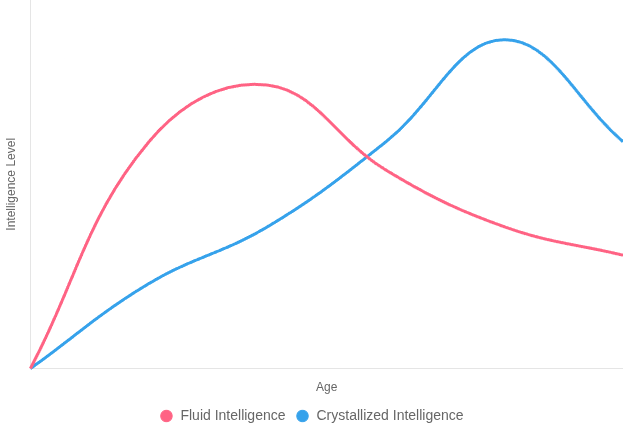From Strength to Strength
Book NotesFrom Strength to Strength, by Arthur C. Brooks.
I picked up From Strength to Strength by Arthur C. Brooks after a Bookworm podcast recommendation. It's essentially about finding fulfillment and happiness in later life. Since I'm well into this stage of life myself, the book caught my attention. It helped that both podcast hosts gave the book a 5-star rating (out of 5 stars).
Our Inevitable Professional Decline
The first chapter of the book talks about our inevitable professional decline. Every high-skilled profession goes through it, and it usually occurs between the late thirties and early fifties. I hadn't given much thought to my "professional decline" until now (thanks to reading this first chapter), and now I want to prepare myself.
While decline is noticeable in physical jobs, such as sports, where older bodies don't perform as well as they did in their younger years, it also affects other jobs that require mental effort, including knowledge work. We know our bodies decline as we age, but our minds do too!
Research indicates that the prefrontal cortex begins to decline in function as we age. We get mentally slower and more forgetful, among other things. I certainly noticed this with myself. It's tougher to work long hours, and I require more effort to focus, while in the past, I wouldn't be distracted by an elephant running through the cubicles.
Of course, there are benefits to being older. I assume we combat this "professional decline" by leveraging our accumulation of knowledge and experience. This chapter doesn't address this, but perhaps it will be discussed later in the book.
Another point the author made that stood out to me was that the more success we achieve in our younger years, the more difficult it will be to let go of that success as we age. It becomes less likely that we will ever achieve the same things we did in the past, and that can be difficult to handle.
Ouch. That hits home.
So, the book starts with a downer. I'm optimistic that, as I continue to read, I'll learn ways to shift my skills to what I'm better at as I get older. I feel like I'm in a good position to do so. As a software architect/engineer, my experience is what sets me apart (I hope).
The Second Curve
The next idea from the book, "The Second Curve", offers an optimistic perspective on aging.
When we're younger, we're relying more on our "Fluid Intelligence", which is essentially our raw intelligence to get things done. We also have our younger energy and fitness on our side. As we age, we lose Fluid Intelligence and rely more on "Crystilized Intelligence", which is essentially our experience and wisdom.

It makes sense that eventually our experience will outperform our raw drive and intelligence. The problem is that we cling to our Fluid Intelligence as we get older, usually unknowingly. It becomes our identity, which is hard to let go of. This can lead to frustration and burnout. We can also feel like we're being passed up by the younger generation.